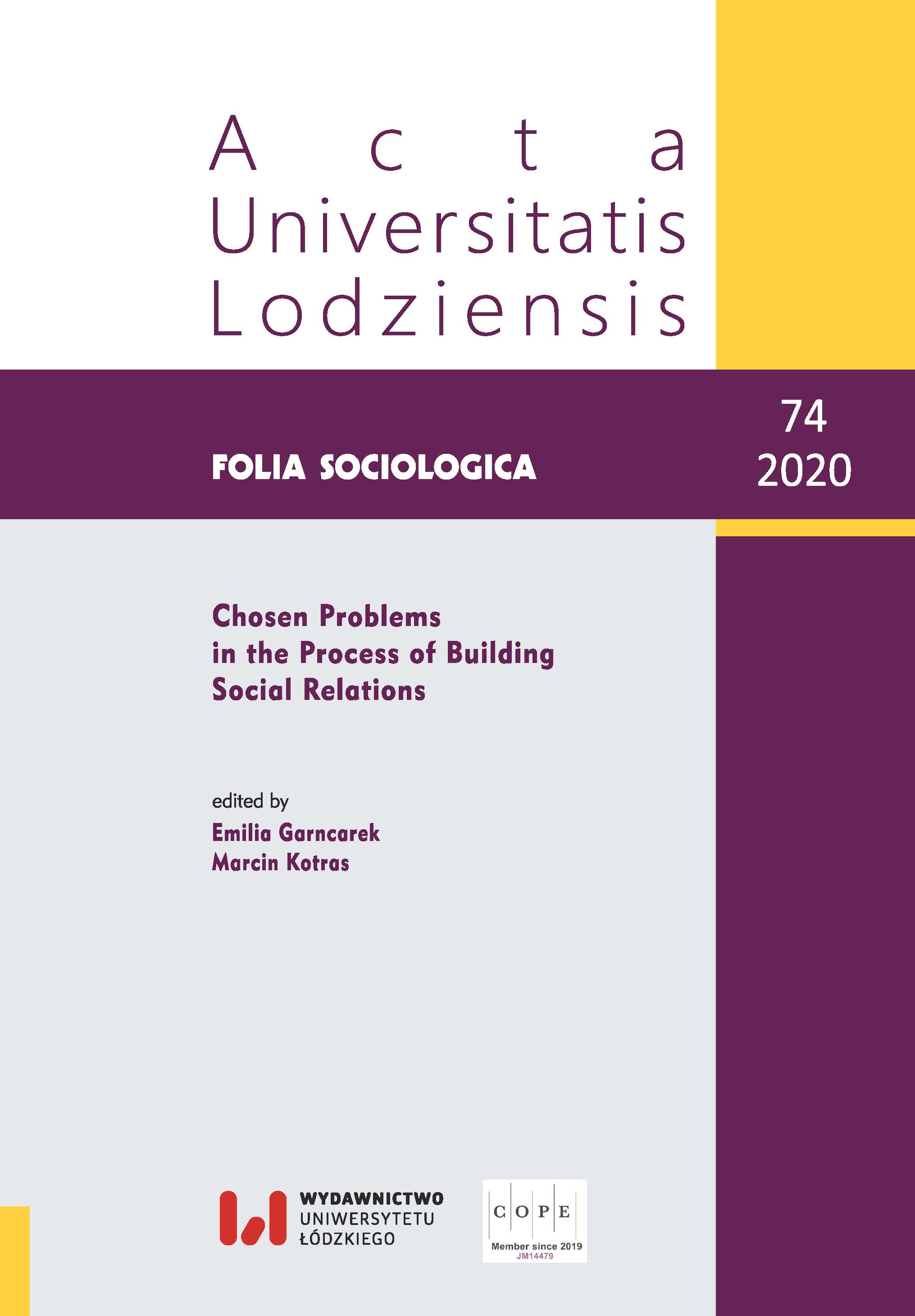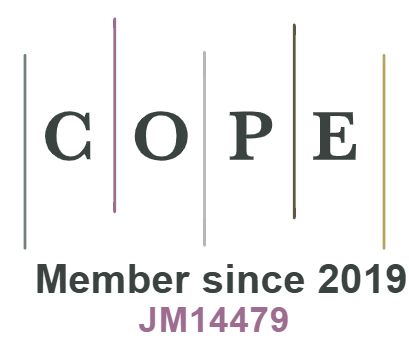Użyteczność koncepcji kontraktu psychologicznego – rozważania definicyjne i koncepcyjne
DOI:
https://doi.org/10.18778/0208-600X.74.06Słowa kluczowe:
kontrakt psychologiczny, relacje pracownik-pracodawca, wzajemne oczekiwania i zobowiązaniaAbstrakt
W niniejszej pracy rozważania skupiają się na dokonaniu przeglądu, analizy i syntezy literatury na temat kontraktu psychologicznego. Głównym celem syntezy obszernego przeglądu literatury przedmiotu jest wskazanie zakresu kreowania relacji interpersonalnych i stosunków zatrudnienia w organizacji. Artykuł wpisuje się w nurt teoretycznych rozważań zmierzających do poznania i wyjaśnienia podwalin oraz chronologicznej analizy rozwoju koncepcji kontraktu psychologicznego.
Prześledzenie rozwoju pojęcia kontraktu psychologicznego jest jednym z głównych powodów bliższego poznania znaczenia kontraktu psychologicznego jako regulatora związków zatrudnienia pomiędzy pracodawcą a pracownikiem. Analiza i synteza uzyskanych ustaleń staje się przyczynkiem do określenia luki w prowadzonych dotychczas rozważaniach i wskazuje implikacje dla przyszłych badań. Jak dotąd ani w literaturze obcojęzycznej, ani tym bardziej w rodzimej nie podjęto kompleksowej próby chronologicznego usystematyzowania i uchwycenia zmian na przestrzeni lat w terminologii kontraktu psychologicznego.
Bibliografia
Anderson N.R., Schalk R. (1998), The psychological contract in retrospect and prospect, “Journal of Organizational Behavior”, vol. 19(7), pp. 637–647.
Google Scholar
DOI: https://doi.org/10.1002/(SICI)1099-1379(1998)19:1+<637::AID-JOB986>3.0.CO;2-H
Argyris C. (1960), Understanding Organisational Behavior, The Dorsey Press Inc., Homewood.
Google Scholar
Arnold J. (1996), The psychological contract: a concept in need of closer scrutiny?, “European Journal of Work and Organisational Psychology”, vol. 5(4), pp. 511–520.
Google Scholar
DOI: https://doi.org/10.1080/13594329608414876
Bańka A., Łącała Z., Noworol C., Ratajczak Z. (2002), University Management. Governance efficiency and efficacy of administration, Jagiellonian University, Kraków.
Google Scholar
Barnard C.I. (1938), The Function of Executive, Harvard University Press, Cambridge.
Google Scholar
Behery M., Abdallah S., Parakandi M., Kukunuru S. (2016), Psychological contracts and intention to leave with mediation effect of organisational commitment and employee satisfaction at times of recession, “Review of International Business and Strategy”, vol. 26(2), pp. 184–203.
Google Scholar
DOI: https://doi.org/10.1108/RIBS-01-2014-0013
Braekkan K.F. (2012), High performance work systems and psychological contract violations, “Journal of Managerial Issues”, vol. 24(3), pp. 277–292.
Google Scholar
Briner R.B., Conway N. (2005), Understanding Psychological Contracts at Work, Oxford University Press, New York.
Google Scholar
DOI: https://doi.org/10.1093/acprof:oso/9780199280643.001.0001
Coyle-Shapiro J.A.-M., Shore L.M., Taylor S.M.S., Tetrick L.E. (2004), The Employment Relationship: Examining psychological and contextual perspectives, Oxford University Press, New York.
Google Scholar
Cullinane N., Dundon T. (2006), The psychological contract: a critical review, “International Journal of Management Reviews”, vol. 8(2), pp. 113–229.
Google Scholar
DOI: https://doi.org/10.1111/j.1468-2370.2006.00123.x
Dabos G.E., Rousseau D.M. (2004), Mutuality and reciprocity in psychological contracts of employees and employers, “Journal of Applied Psychology”, vol. 89, pp. 52–72.
Google Scholar
DOI: https://doi.org/10.1037/0021-9010.89.1.52
De Cuyper N., Schreurs B.H.J., Vander Elst T., Baillien E., De Witte H. (2014), Exemplification and perceived job insecurity. Associations with self-rated performance and emotional exhaustion, “Journal of Personnel Psychology”, vol. 13(1), pp. 1–10.
Google Scholar
DOI: https://doi.org/10.1027/1866-5888/a000099
De Vos A., Buyens D., Schalk R. (2003), Psychological contract development during organizational socialization: adaptation to reality and the role of reciprocity, “Journal of Organizational Behavior”, vol. 24(5), pp. 537–559.
Google Scholar
DOI: https://doi.org/10.1002/job.205
Dulac T., Coyle-Shapiro J.A.-M., Henderson D.J., Wayne S.J. (2008), Not all responses to breach are the same: the interconnection of social exchange and psychological contract processes in organisations, “The Academy of Management Journal”, vol. 51(6), pp. 1079–1098.
Google Scholar
DOI: https://doi.org/10.5465/amj.2008.35732596
Dunahee M.H., Wangler L.A. (1974), The psychological contract: a conceptual structure for management/employee relations, “Personnel Journal”, vol. 53(7), pp. 518–526.
Google Scholar
Freese C. (2007), Organizational Change and the Dynamics of Psychological Contracts: A longitudinal study, Ridderprint, Ridderkerk.
Google Scholar
Freese C., Schalk R. (2008), How to measure the psychological contract? A critical criteria based review of measures, “South African Journal of Psychology”, vol. 38(2), pp. 269–286.
Google Scholar
DOI: https://doi.org/10.1177/008124630803800202
Guest D. (1998), Is the psychological contract worth taking seriously?, “Journal of Organizational Behavior”, vol. 19, pp. 649–664.
Google Scholar
DOI: https://doi.org/10.1002/(SICI)1099-1379(1998)19:1+<649::AID-JOB970>3.0.CO;2-T
Guest D. (2004), The psychology of the employment relationship: an analysis based on the psychological contract, “Applied Psychology: An International Review”, vol. 53(4), pp. 541–555.
Google Scholar
DOI: https://doi.org/10.1111/j.1464-0597.2004.00187.x
Guest D. (2007), HRM and the worker: towards a new psychological contract?, [in:] P. Boxall, J. Purcell, P.M. Wright (eds.), The Oxford Handbook of Human Resource Management, Oxford University Press, New York, pp. 128–146.
Google Scholar
Guest D. (2011), Human resource management and performance: still searching for some answers, “Human Resource Management Journal”, vol. 21, pp. 3–13.
Google Scholar
DOI: https://doi.org/10.1111/j.1748-8583.2010.00164.x
Herriot P., Pemberton C. (1997), Facilitating new deals, “Human Resources Management Journal”, vol. 7, pp. 45–56.
Google Scholar
DOI: https://doi.org/10.1111/j.1748-8583.1997.tb00273.x
Hobbes T. (2005), Lewiatan, czyli materia, forma i władza państwa kościelnego i świeckiego, transl. C. Znamierowski, Fundacja Aletheia, Warszawa.
Google Scholar
Kelley-Patterson D., George C. (2002), Mapping the contract: an exploration of the comparative expectations of graduate employees and human resource managers, “Journal of Services Research”, vol. 2(1), pp. 55–74.
Google Scholar
Kotter J.P. (1973), The psychological contract: managing the joining-up process, “California Management Review”, vol. 15(3), pp. 91–99.
Google Scholar
DOI: https://doi.org/10.2307/41164442
Levinson H., Price C.R., Munden K.J., Mandl H.J., Solley C.M. (1962), Men, Management, and Mental Health, Harvard University Press, Cambridge.
Google Scholar
DOI: https://doi.org/10.4159/harvard.9780674424746
Linde B. (2015), The Value of Wellness in the Workplace, Springer Briefs in Economics, North-West University, Potchefstroom, South Africa.
Google Scholar
Locke J. (2002), Myśli o wychowaniu, transl. M. Heitzman, Wydawnictwo Akademickie Żak, Warszawa.
Google Scholar
Makin P., Cooper C., Cox C. (2000), Organizacje a kontrakt psychologiczny: zarządzanie ludźmi w pracy, transl. G. Kranas, Wydawnictwo Naukowe PWN, Warszawa.
Google Scholar
March J.G., Simon H.A. (1958), Organizations, John Wiley & Sons, New York.
Google Scholar
Meckler M., Drake B.H., Levinson H. (2003), Putting psychology back into psychological contracts, “Journal of Management Inquiry”, vol. 12(3), pp. 217–228.
Google Scholar
DOI: https://doi.org/10.1177/1056492603256338
Menegon L.F., Casado T. (2011), Psychological contracts: a review of literature, “Revista de Administração”, vol. 47, pp. 571–580.
Google Scholar
DOI: https://doi.org/10.5700/rausp1059
Menninger K. (1958), Menninger Clinic Monograph Series. Theory of psychoanalytic technique, Basic Books, New York.
Google Scholar
DOI: https://doi.org/10.1037/10843-000
Morrison E.W., Robinson S.L. (1997), When employees feel betrayed: a model of how psychological contract violation develops, “The Academy of Management Review”, vol. 22, no. 1, pp. 226–256.
Google Scholar
DOI: https://doi.org/10.5465/amr.1997.9707180265
Pate J. (2006), The changing contours of the psychological contract: unpacking context and circumstances of breach, “Journal of European Industrial Training”, vol. 30(1), pp. 32–47.
Google Scholar
DOI: https://doi.org/10.1108/03090590610643860
Portwood J.D., Miller E.L. (1976), Evaluating the psychological contract: its implications for employee job satisfaction and work behavior, “Academy of Management Proceedings”, no. 1, pp. 109–113.
Google Scholar
DOI: https://doi.org/10.5465/ambpp.1976.4975635
Purvis L.J., Cropley M. (2003), The psychological contracts of National Health Service nurses, “Journal of Nursing Management”, vol. 11(2), pp. 107–120.
Google Scholar
DOI: https://doi.org/10.1046/j.1365-2834.2003.00357.x
Robinson S.L., Kraatz M.S., Rousseau D.M. (1994), Changing obligations and the psychological contract: a longitudinal study, “Academy of Management Journal”, vol. 37(1), pp. 137–152.
Google Scholar
DOI: https://doi.org/10.5465/256773
Roehling M.V. (1996), The origins and early development of the psychological contract construct, Academy of Management, Best Papers Proceedings, pp. 202–206.
Google Scholar
DOI: https://doi.org/10.5465/ambpp.1996.4980380
Rogozińska-Pawełczyk A. (2011), From relational to transactional psychological contract – changing paradigm, “Human Resources Management”, no. 3–4, pp. 61–77.
Google Scholar
Rogozińska-Pawełczyk A. (2012), The role of comprehensive remuneration in shaping the psychological contract, “Human Resources Management”, no. 5, pp. 63–76.
Google Scholar
Rogozińska-Pawełczyk A. (2016), Human Resources Management based on a Psychological Contract, IPISS Publishing House, Warszawa.
Google Scholar
Rousseau D.M. (1989), Psychological and implied contracts in organisations, “Employee Responsibilities and Rights Journal”, vol. 2(2), pp. 121–140.
Google Scholar
DOI: https://doi.org/10.1007/BF01384942
Rousseau D.M. (1990), New hire perceptions of their own and their employer’s obligations: a study of psychological contracts, “Journal of Organizational Behavior”, vol. 11(5), pp. 389–400.
Google Scholar
DOI: https://doi.org/10.1002/job.4030110506
Rousseau D.M. (1995), Psychological Contracts in Organisations: Understanding the written and unwritten agreements, Sage Publications, London.
Google Scholar
DOI: https://doi.org/10.4135/9781452231594
Rousseau D.M. (1998), The “problem” of the psychological contract considered, “Journal of Organizational Behavior”, vol. 19, pp. 665–671.
Google Scholar
DOI: https://doi.org/10.1002/(SICI)1099-1379(1998)19:1+<665::AID-JOB972>3.0.CO;2-X
Rousseau D.M. (2001), Schema, promise and mutuality: the building blocks of the psychological contract, “Journal of Occupational and Organizational Psychology”, vol. 74(4), pp. 511–541.
Google Scholar
DOI: https://doi.org/10.1348/096317901167505
Rousseau D.M. (2004), Psychological contracts in the workplace: understanding the ties that motivate, “The Academy of Management Perspectives”, vol. 18(1), pp. 120–127.
Google Scholar
DOI: https://doi.org/10.5465/ame.2004.12689213
Rousseau D.M., Greller M.M. (1994), Human resource practices: administrative contract makers, “Human Resource Management”, vol. 33(3), pp. 385–401.
Google Scholar
DOI: https://doi.org/10.1002/hrm.3930330308
Schalk R. (2005), Changes in the employment relationship across time, [in:] J.A.-M. Coyle-Shapiro, L.M. Shore, M.S. Taylor, L.E. Tetrick (eds.), The Employment Relationship. Examining psychological and contextual perspectives, Oxford University Press, New York, pp. 284–311.
Google Scholar
Schalk R., Roe R.A. (2007), Towards a dynamic model of the psychological contract, “Journal for the Theory of Social Behaviour”, vol. 37(2), pp. 167–182.
Google Scholar
DOI: https://doi.org/10.1111/j.1468-5914.2007.00330.x
Schein E.H. (1965), Organisational Psychology, Prentice Hall, Englewood Cliffs–New York.
Google Scholar
Schein E.H. (1980), Organisational Psychology, 3rd ed., Prentice Hall, Englewood Cliffs–New York.
Google Scholar
Sparrow P.R. (1998), Reappraising psychological contracting, “International Studies of Management and Organization”, vol. 28, no. 1, pp. 30–63.
Google Scholar
DOI: https://doi.org/10.1080/00208825.1998.11656726
Suazo M.M., Turnley W.H. (2010), Perceived organisational support as a mediator of the relations between individual differences and psychological contract breach, “Journal of Managerial Psychology”, vol. 25(6), pp. 620–648.
Google Scholar
DOI: https://doi.org/10.1108/02683941011056969
Sutton G., Griffin M.A. (2004), Integrating expectations, experiences, and psychological contract violations: a longitudinal study of new professionals, “Journal of Occupational and Organisational Psychology”, vol. 77(4), pp. 493–514.
Google Scholar
DOI: https://doi.org/10.1348/0963179042596487
Thomas H.D.C., Anderson N. (1998), Changes in newcomer’s psychological contracts during organisational socialisation: a study of recruits entering the British Army, “Journal of Organizational Behaviour”, vol. 19, pp. 745–767.
Google Scholar
DOI: https://doi.org/10.1002/(SICI)1099-1379(1998)19:1+<745::AID-JOB967>3.0.CO;2-I
Turnley W.H., Bolino M.C., Lester S.W., Bloodgood J.M. (2003), The impact of psychological contract fulfilment on the performance of in-role and organisational citizenship behaviors, “Journal of Management”, vol. 29(2), pp. 187–206.
Google Scholar
DOI: https://doi.org/10.1177/014920630302900204
Venter R., Levy A. (2011), Labour Relations in South Africa, 3rd ed., Oxford University Press, Cape Town.
Google Scholar
Zagenczyk T.J., Gibney R., Kiewitz C., Restubog S.L.D. (2009), Mentors, supervisors and role models: do they reduce the effects of psychological contract breach?, “Human Resource Management Journal”, vol. 19(3), pp. 237–259.
Google Scholar
DOI: https://doi.org/10.1111/j.1748-8583.2009.00097.x
Pobrania
Opublikowane
Jak cytować
Numer
Dział
Licencja

Utwór dostępny jest na licencji Creative Commons Uznanie autorstwa – Użycie niekomercyjne – Bez utworów zależnych 4.0 Międzynarodowe.










